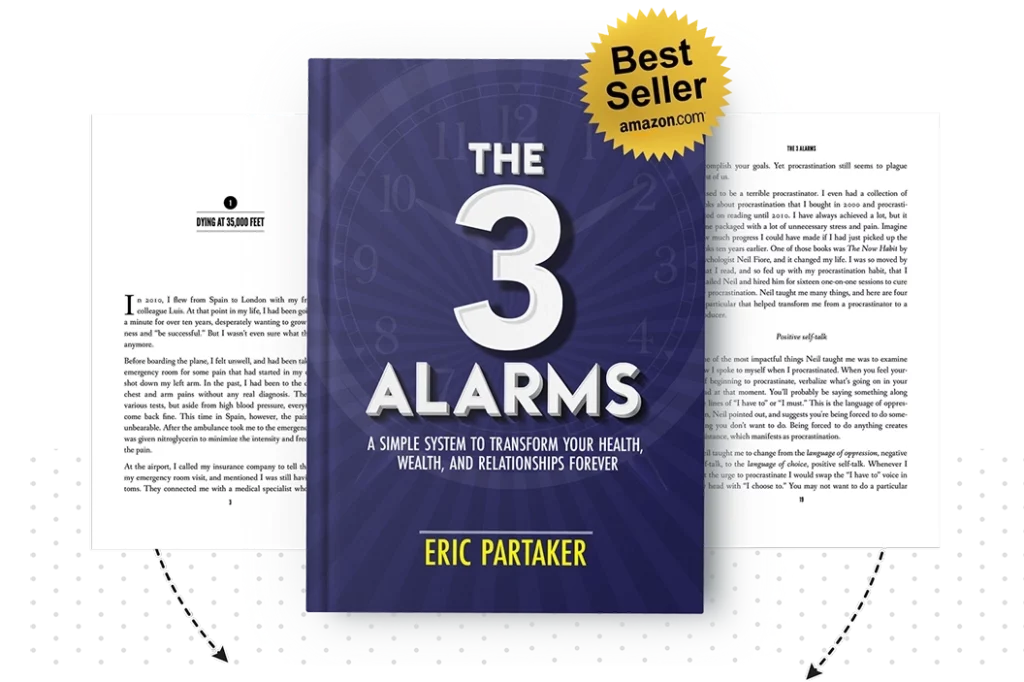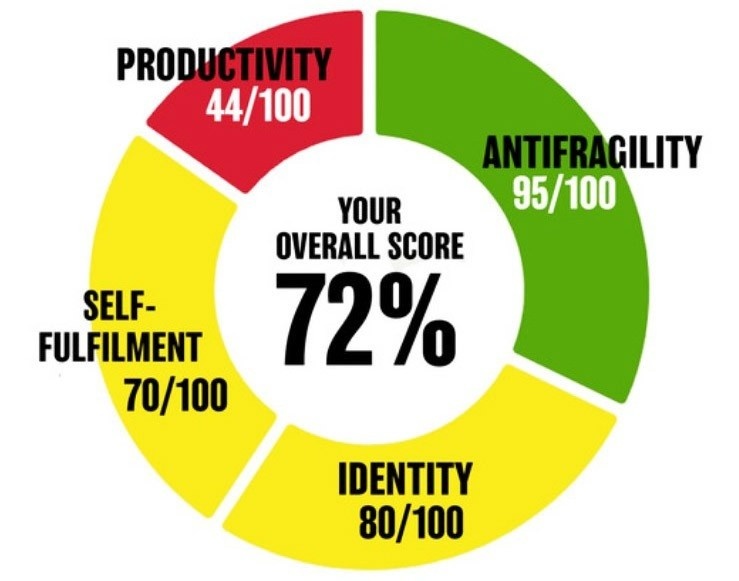In the days, weeks, and months following my near heart attack, I went into a bit of an identity crisis.
I knew who I was. I knew who I wanted to be. And I also knew there was a disconnect between the two.
Once I discovered the importance of recovery and the impact it has on growth, I knew that I needed to make changes in my life. I realized that I needed to become more rounded, dedicating more time to my health and relationships.
It was during this time that I began to recognize the power of identity. Little did I know that we have the power to choose our identities. That’s right — determining who you want to be, and changing it, is entirely up to you.
Changing Your Identity
There’s a misconception that change takes time. People believe that it takes three, five, ten years to improve. Perhaps this comes from a deep-rooted fear of change.
As Psychology Today states, “We fear change because we can’t anticipate the outcome.” In fact, a 2016 study found that stress levels in measured individuals maxed out when uncertainty was highest. Change makes us uncomfortable, which is why we delay it as much as possible.
However, change isn’t something that you need to focus on over a long period. It’s not overly complicated. It’s as simple as recognizing what “best” looks like, and then stepping into it and owning it.
Your current identity is who you are at this point in time. Are you someone who hustles and grinds, neglecting things like health and family? Are you someone who treats people poorly? Who you are as a person, on the most basic of levels, is your identity.
Changing your identity requires you to recognize what you want to become. Do you want to carve out time for the gym every day? Do you want to be a parent who is around when your child needs help with homework? Understanding your desired identity is crucial to reshaping your life.
Why Defining an Identity is Essential
I’ve previously mentioned working efficiently — smarter, not harder. An identity is a powerful thing because it allows you to clearly understand and quantify who you are and who you want to become.
A poor version of an identity is something such as, “I want to be healthier.” Ok — how? Health is an ambiguous term. It’s not measurable. Perhaps more beneficial would be, “I want to be a world fitness champion.”
Maybe you’ll become one, maybe you won’t. Realistically, it doesn’t matter, so long as you’re working toward this goal, growing in the process. You can easily self-measure by asking yourself after a workout if you did everything you could that day to become a world fitness champion.
There can be many components that make up your identity. But, they should provide you with a goal that you can continually work toward. Your identity should be something that you should shoot for and measure your behavior against. And whatever identity you choose, you should work to become the best you can be at it.
Segment Your Day with Three Alarms
In my coming book, The Three Alarms, I outline how I use three simple phone alarms to segment my day. I’ve provided a breakdown below.
6:30 AM —World Fitness Champion
I’ll never be a world fitness champion, and I don’t aspire to become one. But this is the identity I choose to bring to the gym every morning. Harnessing the champion identity is what allows me to push myself further and achieve the extra reps I need to improve myself.
9:00 AM — World’s Best Coach
The next alarm going off is a reset button. No matter how my workout went, it’s time to harness my next identity. This alarm allows me to begin my workday by asking myself, “How would the world’s best coach show up today.”
6:30 PM — World’s Best Husband and Father
The workday is over. No matter if it was the best of days or worst of days, it’s time for me to take on a different identity. Gone are the days when I arrive home tired, unmotivated to play with my kids or hear about my wife’s day. Now, I come up invigorated and reenergized, dedicated to becoming the best husband and father I can possibly be.
Focus on 80-20 improvement
When selecting your identity, try to focus on the 80-20 rule of improvement. Pay attention to the 20% of the areas that will create 80% of the results in your life. Although it’s not the same for everyone, the areas of focus are likely to include some version of the following:
- Health
- Wealth
- Relationships
- Life at Home
You may not become the best at whatever you choose. But, you can continually strive to be. By doing so, you’ll close the gap between who you currently are and the best version of yourself that you want to become.
In my opinion, understanding your identity is a form of recovery. The three alarms, for example, allow you to take time to decompress and self-reflect on your identities and goals. They also serve as a reminder that there are other areas of your life that you need to focus on and that you need to live a well-rounded, balanced lifestyle. These elements are essential to growth.
I’m willing to bet that by harnessing the power of identity, you’ll notice that your lows are higher than your previous highs. So, go ahead and set your three alarms throughout the day at the times most appropriate to you. By constantly reminding yourself of where you are and where you’re capable of being, you’ll grow as a person.





